Deadly attacks in London, Paris, Berlin and beyond have shaken Europe in recent years
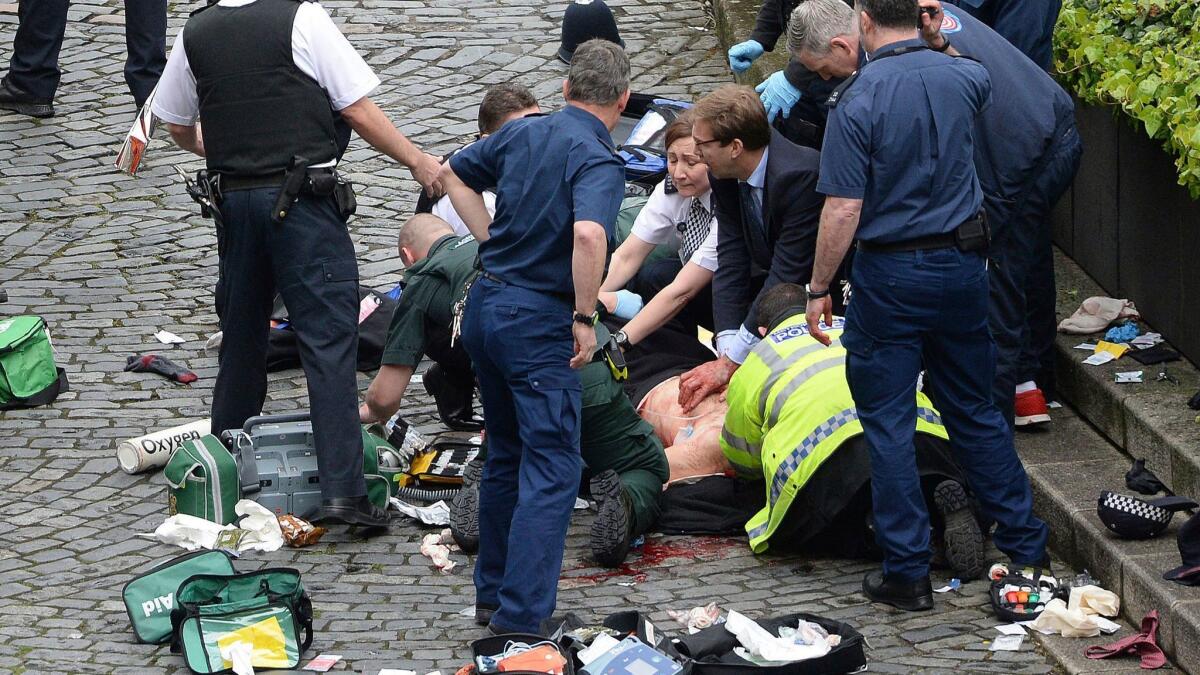
- Share via
An apparent terrorist attack Wednesday outside British Parliament came one year after suicide bombings at the Brussels airport and a Metro station in Belgium.
The London attack, which left several people dead and many more injured, was the latest in a series of prominent assaults in European cities in recent years. In addition to London and Brussels, Paris, Berlin and Nice have been among the targets.
Here are summaries of some of the other attacks:
Dec. 19, 2016
Berlin
A truck plowed into a crowded Christmas market killing 12 people and injuring dozens. The assailant,
Islamic State claimed responsibility for the attack and released a video showing Amri pledging allegiance to its leader, Abu Bakr Baghdadi, the Associated Press reported.
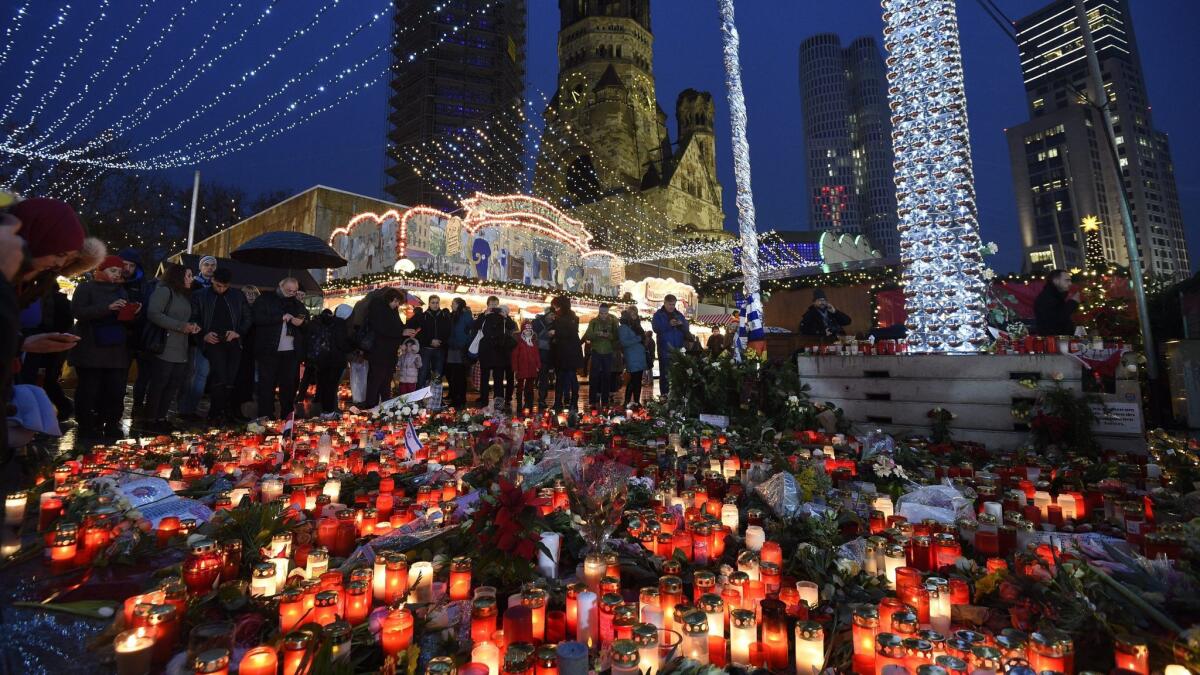
July 24, 2016
Bavaria, Germany
A 27-year-old Syrian refugee blew himself up near the entrance to an open-air concert, injuring 15 people. Bavarian state officials said they found a video on the suicide bomber's cellphone in which he pledged allegiance to Islamic State.
July 18, 2016
Bavaria, Germany
A teenage Afghan refugee armed with an ax attacked people on a suburban train in the southern state of Bavaria, injuring four. The Islamic State-affiliated Amaq news agency later released a video purporting to show the attacker declaring himself "a soldier of the caliphate."
July 14, 2016
Nice, France
In a statement, the Amaq news agency cited a “security source” within Islamic State as saying the attack was carried out by “one of the soldiers” of the radical group.
Nov. 13, 2015
Paris
More than 130 people were killed and hundreds injured in a series of shootings, explosions and suicide bombings at a soccer stadium, several eateries and inside the Bataclan theater, where a concert was underway. The assailants in the theater blew themselves up or were shot as security forces raided the venue. Salah Abdeslam, a Belgium-born French national of Moroccan descent, was accused of involvement in the attack. He was arrested about four months later in Belgium after a massive manhunt.
Investigators believe the plot's ringleader, Abdelhamid Abaaoud, went to Syria to join Islamic State.
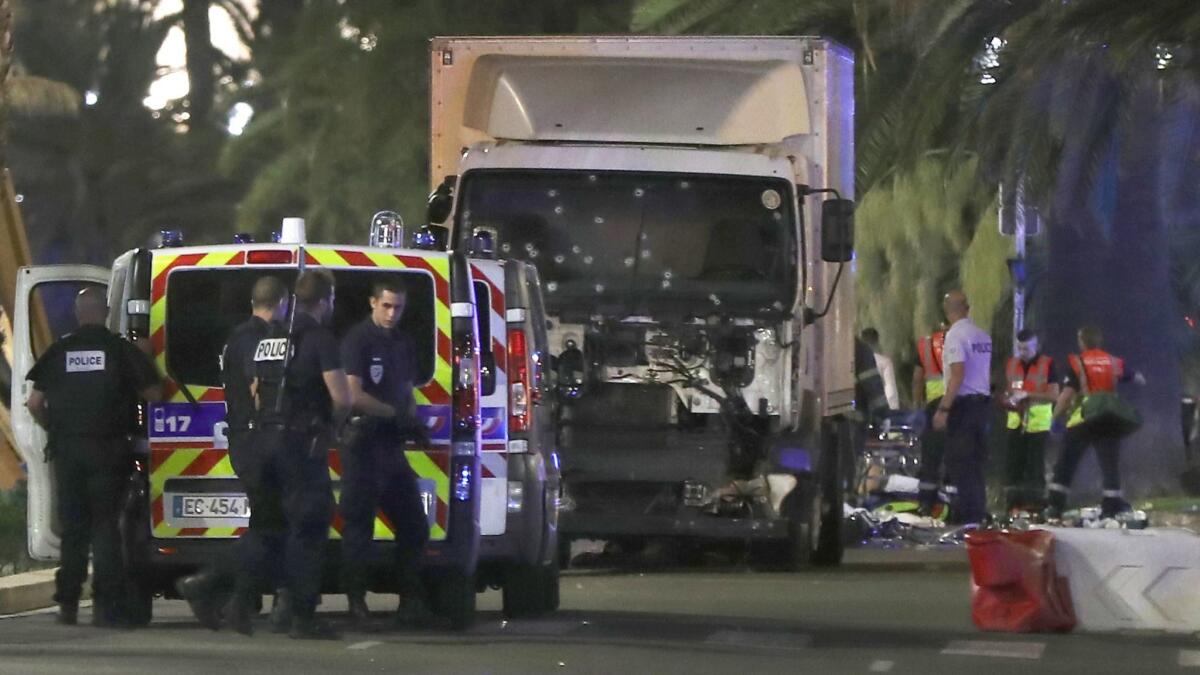
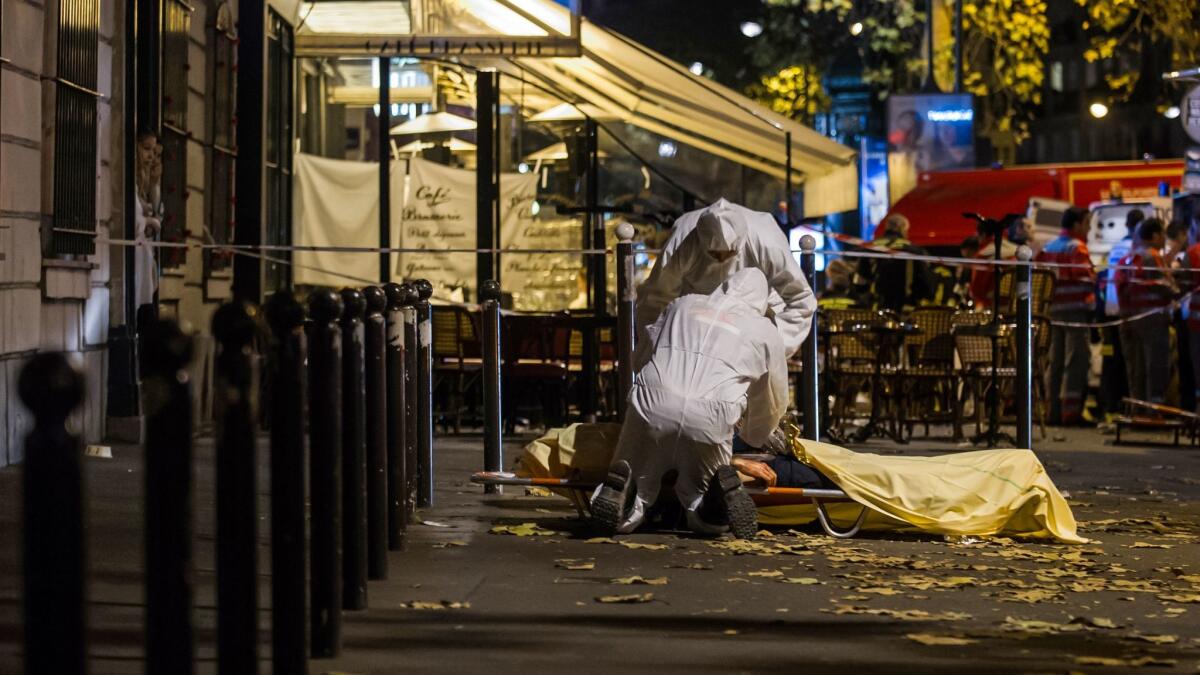
Aug. 21, 2015
Arras, France
A heavily armed gunman opened fire on a high-speed train traveling from Amsterdam to Paris. The train had just crossed the border from Belgium into France when the suspect, Moroccan national Ayoub El Khazzani, fired into a train carriage before being subdued by passengers, including three Americans, one of whom was stabbed. No one was killed.
French authorities said El Khazzani's name had appeared on security alert lists in Belgium, France and Spain because of his alleged links to radical Islamic organizations.
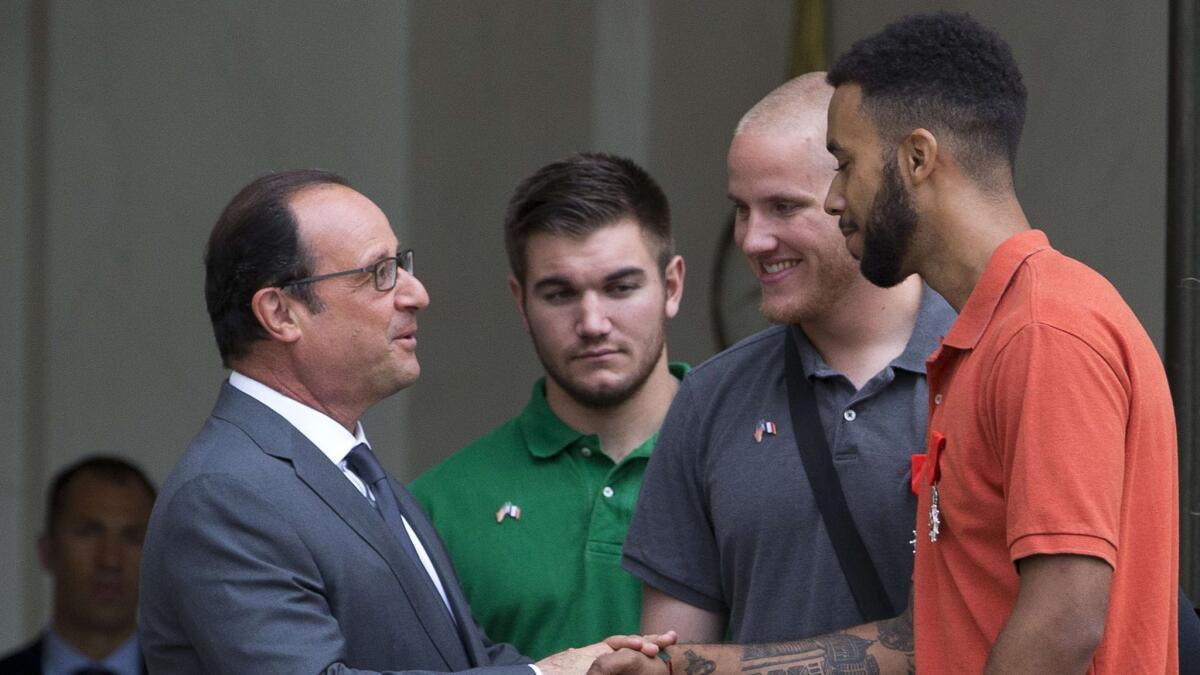
June 26, 2015
Saint-Quentin-Fallavier, France
Yassine Salhi, a French deliveryman, decapitated his employer before driving his van into gas cylinders at a gas factory in this city near Lyon. Almost a dozen people were injured in the resulting explosion. Salhi was arrested and charged with murder and attempted murder linked to terrorism.
Investigators said the deliveryman had a history of radical Islamic ties.
Jan. 8, 2015
Paris
In slayings connected to the assault at Charlie Hebdo the day before, suspect Amedy Coulibaly killed a policewoman before attacking a kosher supermarket, leaving four hostages dead. Coulibaly was later fatally shot by police.
In a video posted online posthumously, he asserted that he had pledged allegiance to Islamic State.
Jan. 7, 2015
Paris
Twelve people were killed when two brothers, Cherif and Said Kouachi, armed with assault rifles and other weapons, forced their way into the offices of the French satirical weekly newspaper Charlie Hebdo in Paris. The victims included a French national police officer outside the building. The brothers were later caught after hiding out in a printing warehouse in the north of Paris and killed by French security forces.
U.S. intelligence officials confirmed that at least one of the brothers had traveled to Yemen and received training from the extremist group
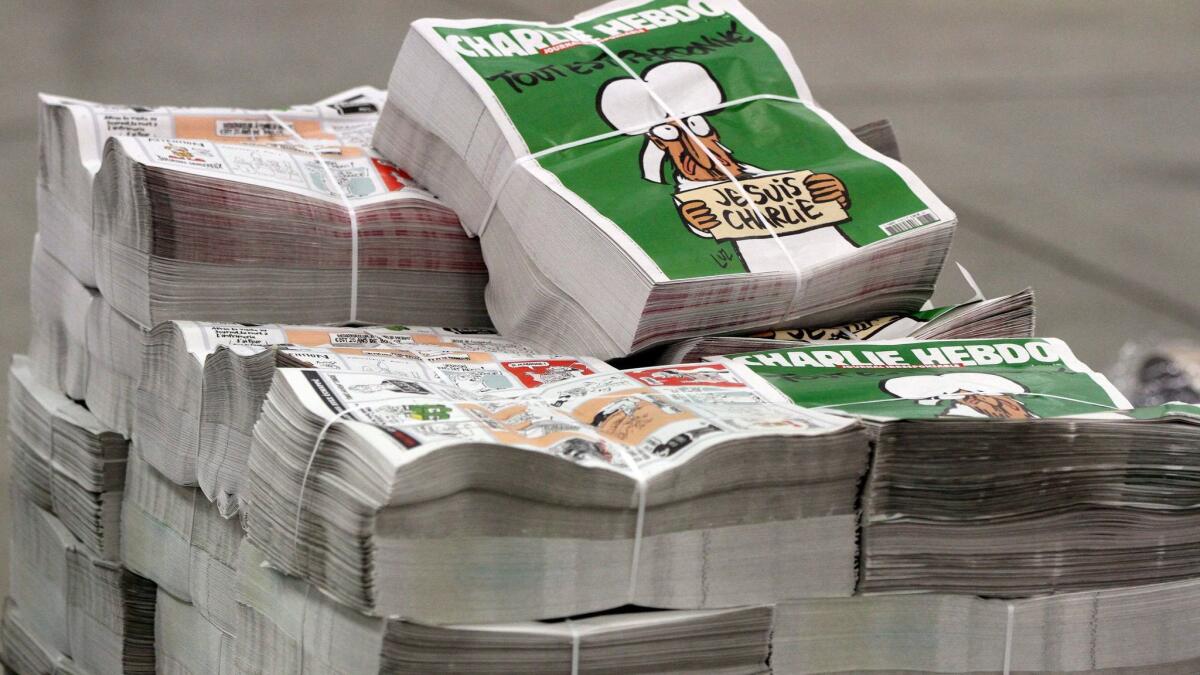
May 22, 2013
London
British soldier Lee Rigby was hacked to death on a London street. He was off duty and walking outside his barracks when Michael Adebolajo and Michael Adebowale struck him with a car before attacking him with knives and a cleaver. The assailants, both British citizens of Nigerian descent, were shot by police and arrested.
During their trial, the two defendants called themselves soldiers of God and referred to members of Al Qaeda as their brothers, though authorities do not believe that the pair were involved with the group.
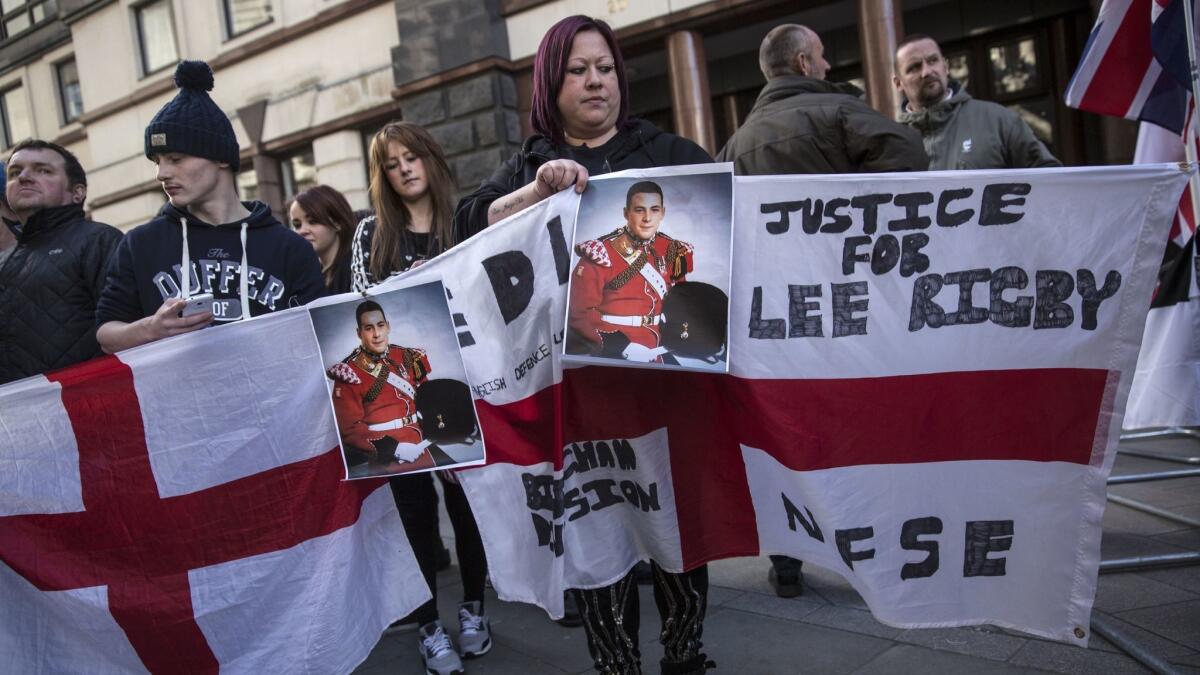
Special correspondent Erik Kirschbaum in Berlin contributed to this report.
For more on global development news, see our Global Development Watch page, and follow me @AMSimmons1 on Twitter
UPDATES:
6:30 p.m.: This article has been revised to include additional incidents and further details.
This article originally posted at 3:20 p.m.
Sign up for Essential California
The most important California stories and recommendations in your inbox every morning.
You may occasionally receive promotional content from the Los Angeles Times.








